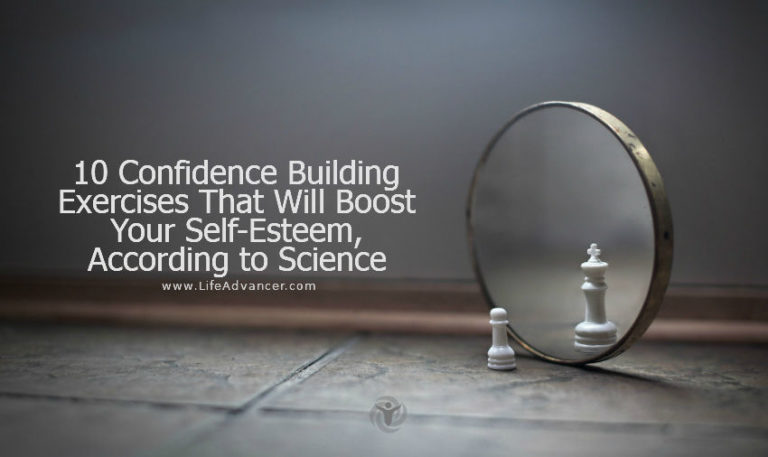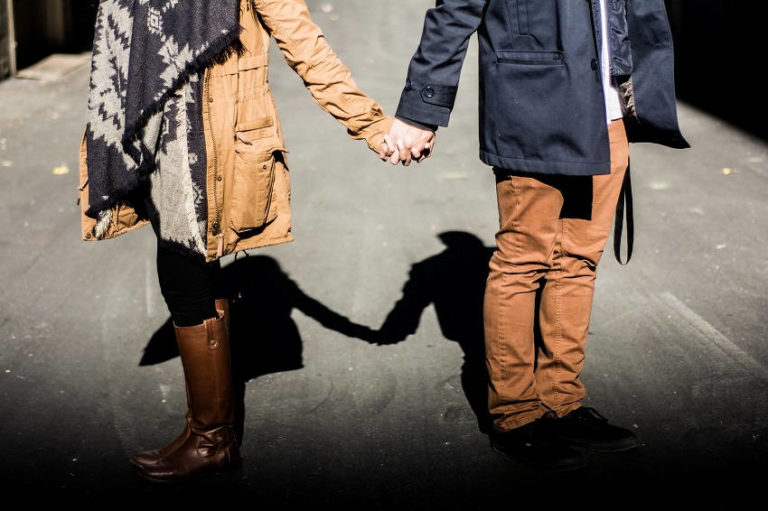Attachment disorder in adults typically starts during the most formative years in childhood.
It can be due to poor attachments to our mothers and fathers, which can include poor parenting or separation such as divorce or death. It can also be due to physical or sexual abuse. We learn from our primary caregivers how to form meaningful relationships so if they, for whatever reason, are poor examples, it’s no wonder we struggle when we are older. Adult attachment disorder in adults can show up in many different ways.
From difficulty to maintain a good relationship to things like control or anger issues. The most common cause of attachment disorder in adults, however, is attachment issues in childhood. So let’s have a quick recap about attachment theory before we continue.
Attachment Theory
John Bowlby theorized that children need to have a close attachment with a primary caregiver from birth and growing up through childhood. If they didn’t they would face issues as adults. Mary Ainsworth continued his work and identified three attachment styles:
Early Attachment Styles in Children
1. Secure Attachment: Positive and Loved
Children are loved and feel secure that their parents will be there to meet their needs. They are able to use their parents as a safe base so they can explore from it. They will go to their parents when they are distressed.
2. Avoidant: Unloved and Rejected
These children will have a parent or caregiver that ignores or rejects them or is insensitive to their needs. As a result, they learn to be independent and fend for themselves. They will not go to their parents if they are upset.
3. Anxious-Ambivalent: Angry and Confused
Children with an anxious-ambivalent style swing from exhibiting clingy or hostile behavior. This is because they have an unpredictable parent that is loving and giving one moment and then unresponsive the next.
How Attachment Styles in Children turn into Attachment Disorder in Adults
As in childhood, there are two attachment disorders in adults:
- Avoidant
- Anxious-Ambivalent
Signs of Adult Avoidant Attachment Disorder
- Aggression/Anger
- Critical/Blames others
- No empathy
- Needs control
- Cannot trust others
- Cannot depend on anyone
- Clashes with authority figures
- Avoids intimacy
Main Signs of Adult Avoidant Attachment Disorder
Aggression/Anger: Adults with avoidant attachment disorder will get depressed and anxious, but they will try their best to conceal it. Instead, it will come out as anger and aggression. They will appear cruel and hostile to their partners and display destructive behavior that others won’t be able to understand.
Needs control: Because they had no control growing up, they crave it as adults. As such, they now have to control everything, from their surroundings to their family, including the home and finances.
No empathy: As children, these adults were never shown love or caring. Now as adults they cannot connect with others, or they find it extremely difficult to do so. Another aspect of this disorder is that they find it very hard to accept love from others. They have never experienced it before. Now it feels false.
Cannot trust: These adults learned a long time ago that the most important people in their lives could not be trusted. So it is not surprising they find it almost impossible to put their trust in another person now.
Signs of Adult Anxious-Ambivalent Attachment Disorder
- Idealises relationship
- Dependence on relationships
- Jealous/Clingy behavior
- Excessive need for contact and affection
- Relies on a partner for everything
- Cannot take rejection
- Possessive
- Mood swings
Main Signs of Adult Anxious-Ambivalent Attachment Disorder
a. Dependence: For these adults, their self-worth, their identity, everything about them is caught up with their partner. Therefore they are highly dependent on them. As a result, they stifle the relationship.
b. Mood swings: This dates back to their parent’s behavior. One minute their parents were involved with them, the next minute they were being ignored. Now, as an adult, this behavior is replicated.
c. Excessive need for contact: We need contact and affection from our parents when we are growing up so if we don’t get it we crave it as adults. But it can be off-putting to our partners.
d. Jealous: Because as children we were always vying for our parent’s attention we have grown up feeling possessive and jealous if anyone stands in our way. Now we are adults this applies to our relationships.
How to Heal Attachment Disorder in Adults
There are not many of us that had the perfect childhood. But the human mind is a wonderful thing. There are many types of therapy that can help us get through even the worst childhood traumas. But to start off:
- Identify which childhood attachment style applies to you
- Understand why your parents may have failed you
- Believe you can change even if you didn’t have the best start
Learn to communicate
We cannot even start to heal our psychological wounds unless we start talking. This could mean going to a therapist or just discussing things with your partner or family. The first step to getting better is talking about painful childhood experiences.
Grieve, forgive and move on
Holding onto anger and pain doesn’t serve our psyche or our wellbeing. In order to move forward we have to be able to grieve what happened, forgive those involved, and only then can we began to move on.
Talk to a therapist
If the pain is too great we need expert help. There’s no shame in going to a therapist, I’ve been to loads! And I’m seeing one now! Sometimes a therapist is the only one that has the skills to guide us through an emotional and traumatic path. They provide a safe space for us to divulge our pain and the way forward to realize our full potential.
Remember, just because you had a rotten childhood, it doesn’t mean you have to suffer through your adult life. With help and understanding, you can alter your behavior and form meaningful relationships.
References:





I am a 53 year old physically healthy American man and 7 years ago I got sober. Just recently I put all these dots together through experiences I had with cryptic, idiot psychotherapists who were so proud of themselves for diagnosing and clueless on how to fix it or even try to fix anything but they never really diagnosed it. Like I said it was cryptic with no label and you can’t fix something without diagnosing it correctly first and that means labeling it or naming it. When I was 17 after one of my first of several DUI’s (no injuries to other people or me I thank GOD every time I remember) this guy tells me – ‘You’ll never be loved’ and as a 17 year old teenager this didn’t hit me as hard as it should have and does now because know one that doesn’t really know me has never been so right. It was just something that stuck in my head on and off my entire adult life. Of course he had no answers, just bad news, and that’s why I despise them. By the time I was 30 and not having near the amount of sexual experiences and girlfriends and even getting married like everyone else I knew was . I’m not an arrogant person but I am not an unattractive person. Attractiveness means not a damn thing if you don’t know what to say and/or react inappropriately. I knew I was screwed in a really bad way. Women intimidate me in certain – quite a few – situations and I know it’s mom related, it has to be. The women aren’t acting intimidating it’s all in my head. Luckily it doesn’t affect professional relationships then I might as well not exist. So long story short here I have severe Adult Avoidance disorder. Never had a serious relationship or even a non serious one with a woman. The textbook case of unrequited love from high school just magnified the hell out of it and I mean really bad. I had another old bat psychologist who was so proud that she was a lawyer and a doctor. A serious b*tch is what she was and everyone at this rehab place was of the same opinion, including the counselors. It wasn’t a very nice rehab place so she couldn’t have been that great a doctor to begin with. She tells me ‘You need to work on your personality’ – I told her she needed to look in the mirror and say that. Nevertheless she saw the same thing that guy did when I was 17. I was 39 when I talked to this multidisciplinary genius. Bottom line is my life has been ruined by this disorder. It led to my alcohol abuse, no family, my own business where I have no employees that I could use to expand my business of which I have plenty of, but can’t manage people well. Did I say ‘well’? I meant ‘at all’. I have my own business because I like being in control of what I do. I’m a classic, textbook case here. At 53 my life is basically over. I can’t recover from this ever or if I could in any amount of time it wouldn’t make any lasting difference in the short amount of lifetime left. I may not have any meaningful relationships with ANYONE but I do know they take a very long time to grow and my time is near done. It has made me irritable and sad a lot of my life and I think knowing what and why now is good but it also may be a case where ignorance was bliss or at least not so incredibly heavy. I try not to think about it, but that doesn’t work especially now that I know my behavior and no way to change it. I was firstborn with 3 siblings all with healthy families and healthy, secure attachments. My mom’s mom beat her and I think she mistreated me when I was young. I do remember her hitting me. My siblings got the best versions of my parents because she especially matured dramatically as my 2 brothers were born 9 and 11 years after me. They were never hit or spanked – ever. I was plenty old enough to remember their entire lives. Both brothers make great money – much more than me- and have wonderful families. My sister died from cancer in 2002 she was 2 years younger than me with very healthy,secure attachments. She was married and had a son. I think she made it through because she was a girl. There’s a picture of me and her next to each other and it really just encompasses my life from then on. I looked to be 4 and my sister 2. I was staring at the camera, unhappy and kind of bewildered looking. Jennifer my sister is lit up with a big smile and just so cute. I missed the entire prime of my life because of this and the rest of it too.